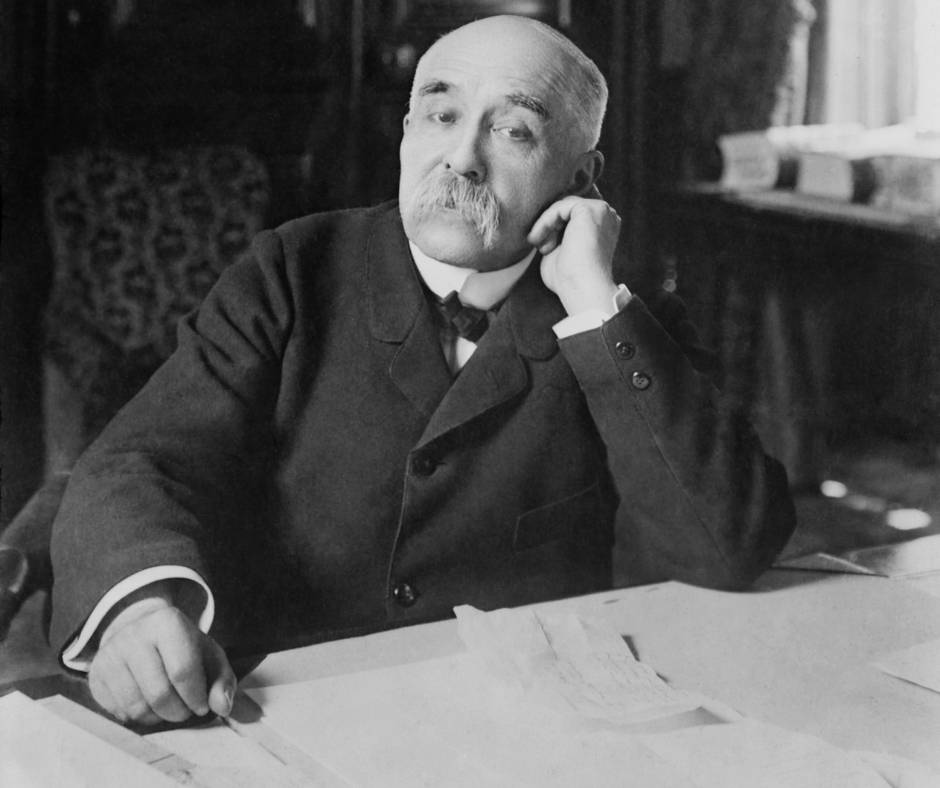Clemenceau’s Hungarian daughter-in-law’s infidelity caused Trianon?

For Hungary, the Trianon Treaty is still considered a national wound that does not seem to heal despite the passing of time. On the 4th of June 1920, following WWI, the country was forced to cede two-thirds of its former territory and 3.3 million of its compatriots. Some locals believe that there must have been a hidden agenda that would partially explain such harsh injustice. A century-old legend has it that the French Prime Minister, Georges Clemenceau, a dominant figure of the Alley and the main framer of the treaty, had such hatred towards his promiscuous Hungarian daughter-on-law that he imposed extreme penalties on Hungary to get back at her. We unveil the truth in this article!
Former medical-doctor-turned-politician, Georges Clemenceau, byname The Tiger, was a dominant figure in the French Third Republic and a major contributor to the Allied victory in WWI. “The Father of Victory ” led an immensely successful political career, however, his private life was riddled with disappointments. According to divany.hu, Mary Plummer, his wife, gave birth to three children but the marriage fizzled out shortly afterwards. The American-born former pupil of Clemenceau was actually caught cheating on her husband with the children’s tutor, hence, divorce was inevitable.
The French politician’s only son, Michel, pursued agricultural studies in Switzerland and after graduation, he landed a job at the Kuffner&Guttman sugar refinery in Diószeg. This was apparently arranged by the owner Kuffner himself, during an encounter with Clemenceau in Carlsbad (now known as Karlovy Vary, a popular spa town in the Czech Republic), where both gentlemen enjoyed annual stays to relax and refresh themselves before the outbreak of WWI.
While working at the factory, Michel met his wife, Ida Michnay, the daughter of a Hungarian county magistrate.
Based on geni.com information, Ida had a rare beauty that was celebrated by many. Newspapers of the period called her “das schönste Mädchen des Landes” (most beautiful girl in the country) for her “tizianblonde, milchweisse, veilchenäugige” (blond hair, snow white skin and blue violet eyes).
Read also: Even Hungary’s military successes could not stop Trianon
The couple tied the knot in Galanta in 1901; the marriage seemed idyllic at first but marital issues quickly reared their ugly heads which eventually led the couple to split. Rumours had it that the father treated his children particularly harshly. Michel was also known for his promiscuous nature besides he was involved in some shady business connections which also made him drift apart from his father. For many years, they were not even on speaking terms. In the end, Ida was also caught having an affair, which is when Michel finally filed for divorce. He cut all ties with his wife.
At that time, people believed that Clemenceau must have kept harsh feelings toward his daughter-in-law for how the marriage went down but it was quite the contrary. According to historian Péter Hahner, the French politician stayed on good terms with Ida, he considered her part of the family and even supported her financially. On the other hand, he was never able to forgive his son for smearing his reputation with his corrupt business affairs.
Some legends have it that the harsh Trianon sanctions were brought upon Hungary because of the alleged suicide of Clemenceau’s son who was rumoured to take his life when he found out about his wife’s infidelity, but in fact, Michel lived until his ’90s.
Even though it is tempting to justify Clemenceau’s punishment of dismantling Hungary with his alleged hatred toward his daughter-in-law, in reality, there were no emotional factors or private matters behind his decision. He did what served best his country. His actions had a strategic reason, France was in need of finding new allies after losing Russia. Clemenceau’s long-term goal was to build a coalition of small new nations, including the countries of Central Europe and the Balkans, led by France and capable of standing up to Russia or Germany.
Read more: Why is Trianon still so devastating for Hungarians even after 100 years?
Source: divany.hu, geni.com

